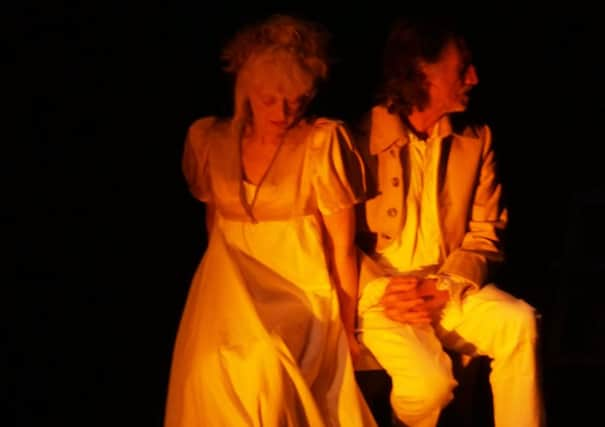Playwright promises ‘a story of time, space, curiosity and passion’


It comes from the pen of Siobhán Nicholas who will also features in the piece.
William Herschel discovered Uranus. So what did his sister do? Science has historically been a man’s domain; yet look closely at the archive and you’ll find a silent army of intelligent, dedicated women researching and discovering, Siobhán argues.
Advertisement
Hide AdAdvertisement
Hide Ad“This is a story of time, space, curiosity and passion,” she promises. “Two women astronomers, Caroline Herschel from the 18th-century and Jessica Bell from the 21st look up at the same night sky and find themselves colliding in their search for understanding. Each woman can precisely map her position in the universe yet she struggles to find her place in the world.”
Stella focuses on the real-life story of Caroline Herschel (1750-1848) who discovered eight comets and 11 nebulae and received the Royal Astronomical Society’s Gold Medal; a genius who with her brother, William, could be said to have laid the foundations of modern astronomy.
“But Caroline also passionately longed for a family and home of her own. The play, through Jessica Bell, our fictional modern astronomer, positions this dilemma up against humanity’s consuming need to explore the enormity of the universe and thereby understand the origin of life itself,” Siobhán explains.
“I became interested in astronomy when I stumbled across a quote from an astrophysicist called Jocelyn Bell Burnell: ‘We are all made of star stuff’. Those beautiful simple words inspired me to find out more.
Advertisement
Hide AdAdvertisement
Hide Ad“Jocelyn discovered the Pulsar Star, an achievement that should have earned her the Nobel Prize. An amazing woman! Following this slight, instead of wallowing in bitterness, she has spent her life nurturing young astrophysicists and encouraging women into science.
“I began thinking about the modern female astronomer with so much technology at her fingertips, witnessing the wonders of the universe expanding before her eyes – and all the while sustaining a very earth-based juggling act of loved ones and work. Is she in a better position now than her past counterparts? Do brilliant female minds have to renounce love in order to discover the wonders of the universe?
“Even Marie Curie, perhaps the most famous female scientist from the past, said ‘I have frequently been questioned, especially by women, of how I could reconcile family life with a scientific career. Well, it has not been easy.’”
As Siobhán says, it seemed to her that Burnell’s words – ‘We are all made of star stuff’ – taken to their zenith provided a complete argument for racial and sexual equality: “We are made up of all the atoms that are up there in the skies. We mirror the other planets. We mirror our stars.”
Advertisement
Hide AdAdvertisement
Hide AdSiobhán is in no doubt: “It was because of sexism that she was overlooked. When she first made her discovery, her tutors almost rubbished her findings. But it was Burnell who discovered the Pulsar Star which literally pulses across the universe. Nobody had known about it before, but it was her two tutors who got the Nobel Prize. But she was never bitter. The female astronomer is a rare thing. There have been female scientists throughout history, but not so many astronomers.”
Siobhán was keen to find out more, went to the Royal Society and came across the Herschels. She found herself particularly drawn to Caroline and her achievements. From the research, Siobhán began to write the play Stella. On stage she will be joined by Chris Barnes and Kathryn Pogson.
Siobhán founded Take the Space in Brighton eight years ago and has already toured three productions – Sam & I, Hanging Hooke and Dolce Via – across the UK and Ireland.
Book on www.cft.org.uk or call 01243 781312.